Event Overview | The First Dialogue of the China-Europe-America Youth Program
Date:2022-03-31
Co-organized by the China-Europe-America Global Initiative, the Academy of Contemporary China and World Studies (ACCWS), and the Belgian-Chinese Chamber of Commerce, the first dialogue of the China-Europe-America Youth Program was programmed online on 29 March 2022. Due to the COVID situation in Shanghai starting from 28 March, the event had to be canceled.
Prior to the event, we had received videos and speeches prepared by our speakers. What follows is a presentation of some of this material.
In the opening ceremony, Du Zhanyuan, president of China International Communications Group, emphasized youth’s significance at a moment when the world is facing a series of serious challenges. Despite a combination of traditional and non-traditional security threats, Du Zhanyuan expressed his belief in the idea of “one world and one human family”. He called for more youth engagement at the service of peace and development. Anticipating the first session of the forum and its focus on multilingualism, Du Zhanyan quoted President Xi Jinping in his address: “Learning foreign languages can help people better understand the differences between cultures. In this way, we can put the world in perspective, thus living in harmony and friendship.”
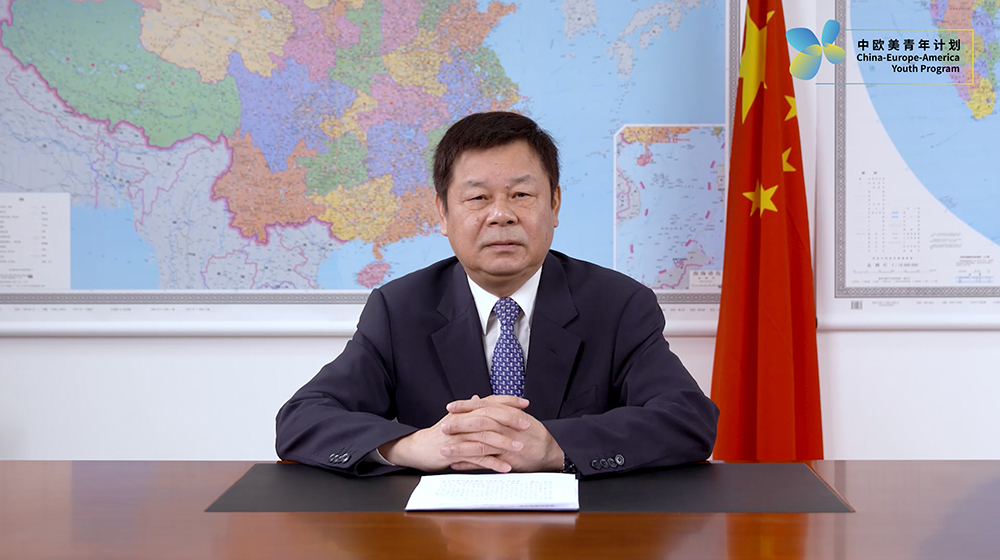
While Miguel Angel Moratinos, the United Nations High-Representative for the Alliance of Civilizations (UNAOC), commended the China-Europe-America Global Initiative and its Youth Program, he told the audience that the Alliance of Civilizations itself established 17 years ago works “with youth and for youth”.
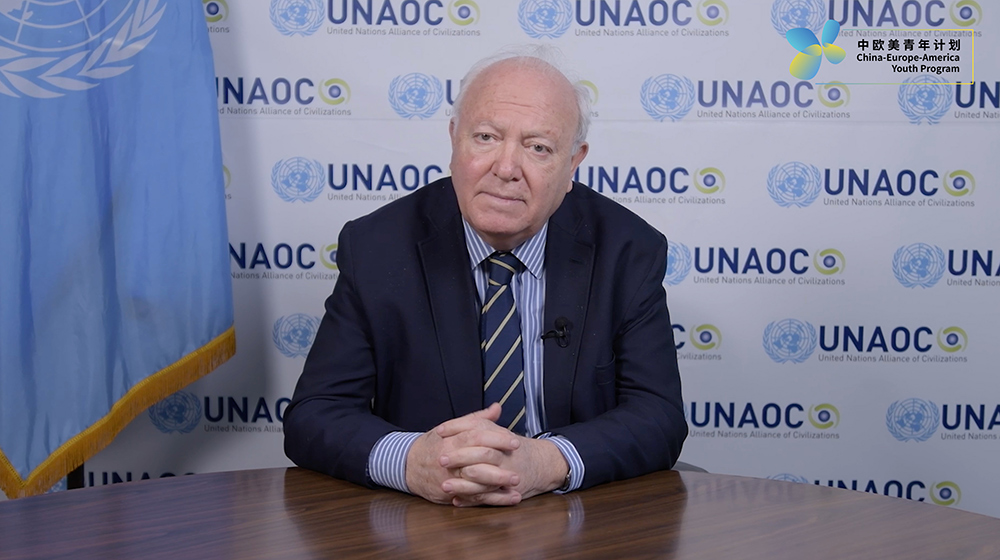
In his address to the forum, Siddharth Chatterjee, the United Nations Resident Coordinator in China, pointed at the necessary use of dialogue in order to tackle present challenges. He urged youth “to communicate and connect”, to be ready to build partnerships, and to cultivate empathy.
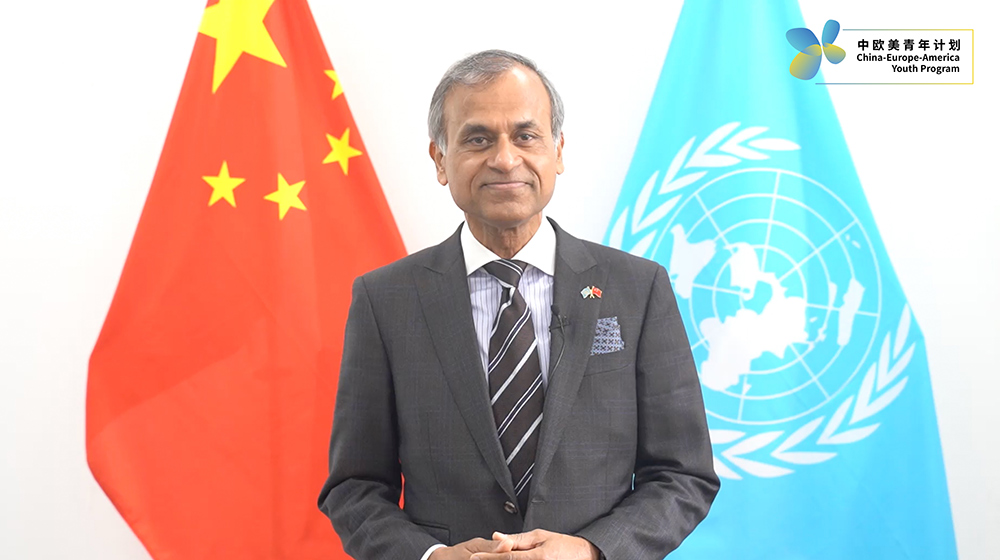
Two top academics, Wang Lei, vice president of Nankai University, and Maria Amata Garito, president of UniNettuno, put education at the center of the stage. The president of UniNettuno discussed the ways technology can help the dissemination of knowledge.
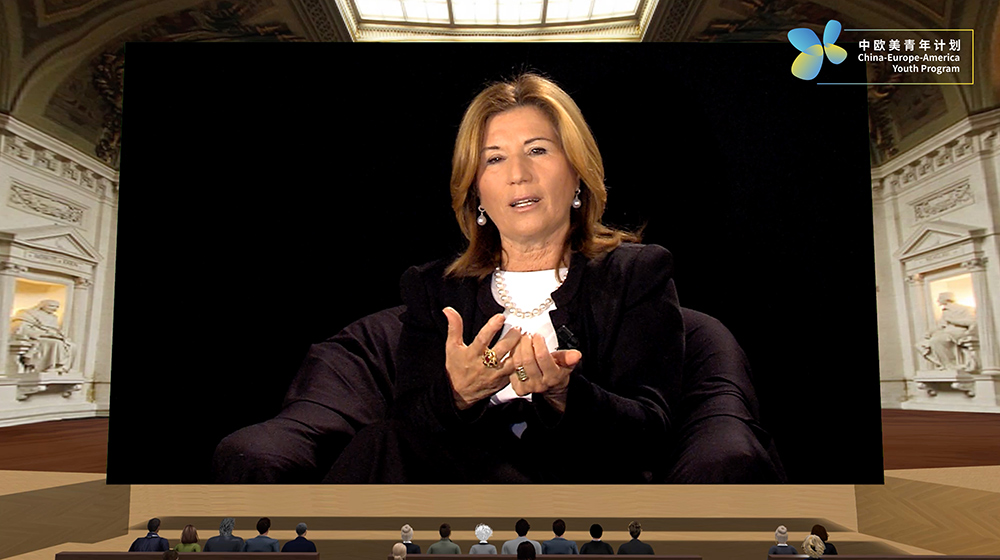
Wang Lei, vice president of Nankai University, associated youth with hope. He said : “Young people are full of vitality, ambition and originality, they will create and lead our future. It is through the efforts of each and every generation, especially the youths, that the cooperation between China, Europe and America and also a better tomorrow of the world can be achieved. Where there are ambitious and responsible youths, there will be infinite hope and power for us human beings to seek for peace and development.”
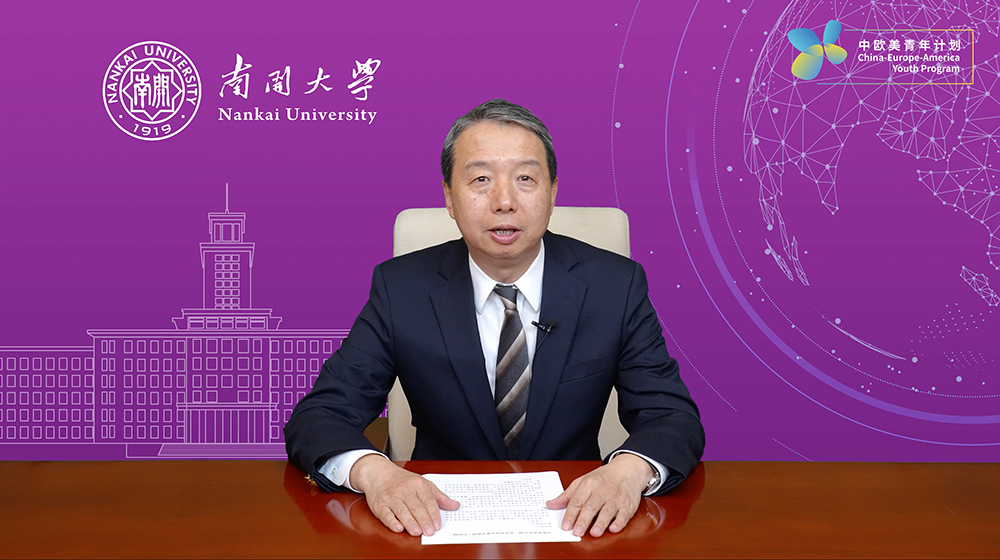
The first session aimed at exploring the theme of youth for mutual understanding and world peace.
In the words of Zheng Yakun, from Fudan University, “it is impossible to blindly abhor the culture attached to the language one speaks, because what we hate is often the vague, generalized idea of a nation that is imposed by others. When we start to see the nuances and the multi-dimensional nature of different cultures by learning their languages and having an immersive experience, it opens up the possibility to understand and embrace the differences that were once erased and hidden by generalization and stereotypes.”
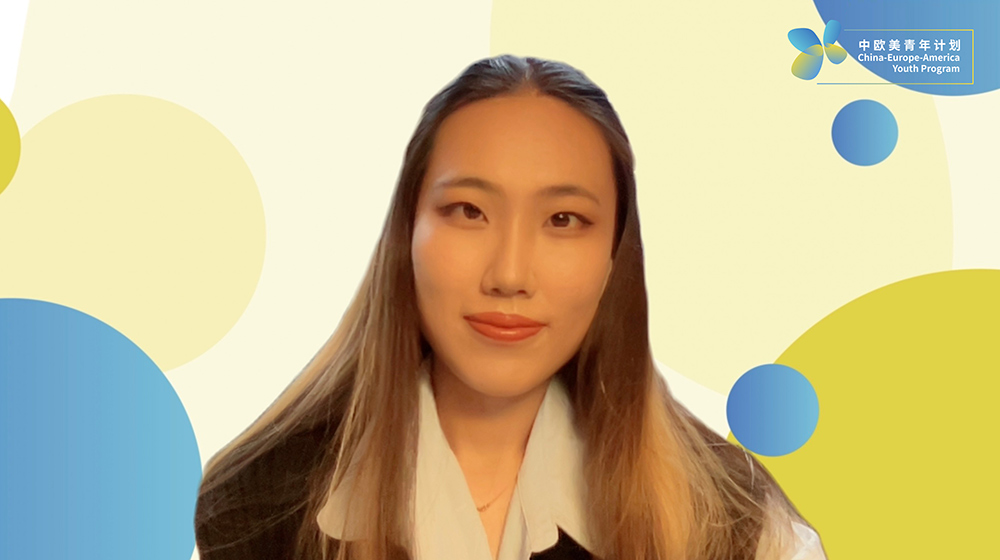
Linda Ruan, a pianist from the Tianjin Juilliard School, introduced her rich multicultural background with words. She then turned to music, a universal language. Linda Ruan interpreted Frédéric Chopin’s Etude known as “Torrent”, of which it can be said that it is youth in music.
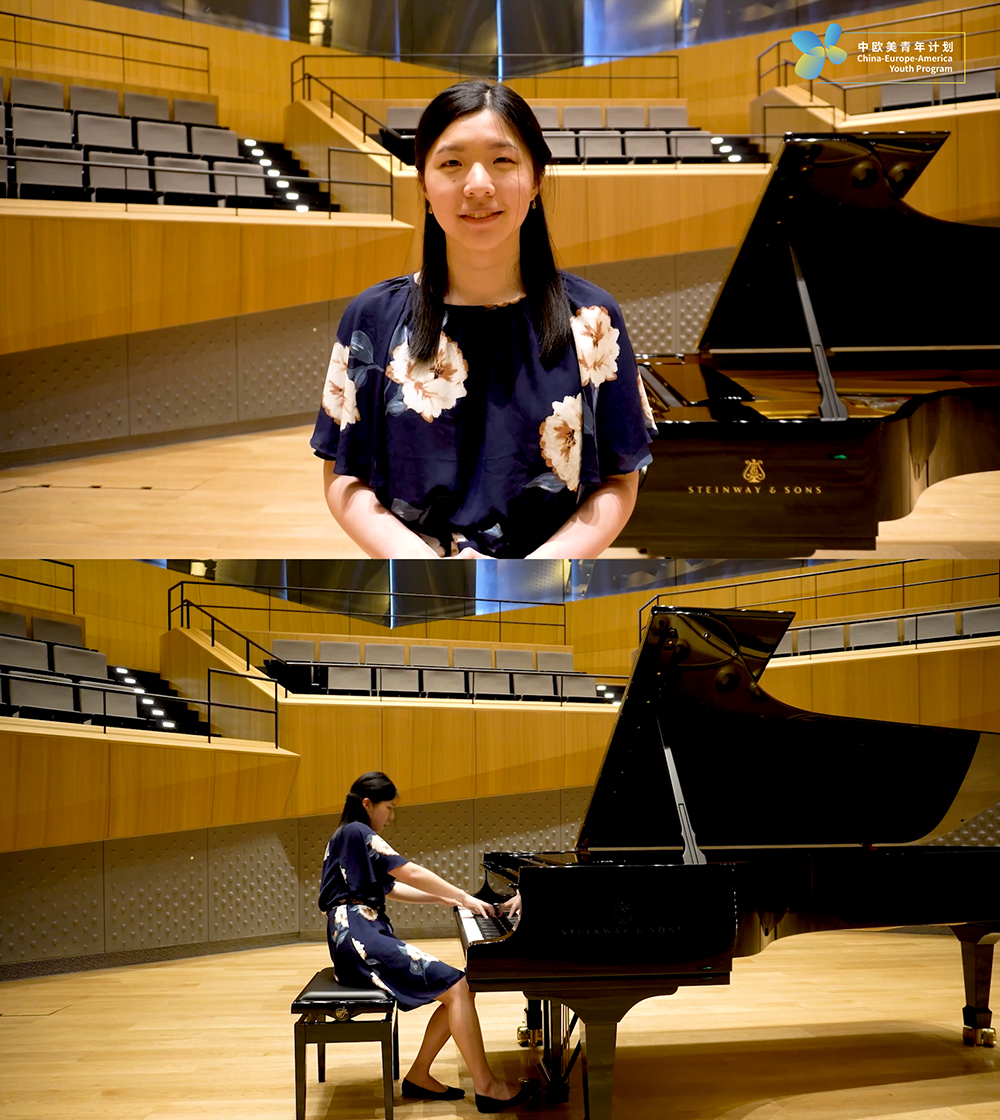
Li Haoran, postdoctoral scholar at Tsinghua University, wrote the four Chinese characters “和而不同”. From the Analects of Confucius (551-479BC), they can be translated as “harmony without uniformity”. Li Haoran’s ink, brush and paper constituted a meaningful calligraphic interlude.
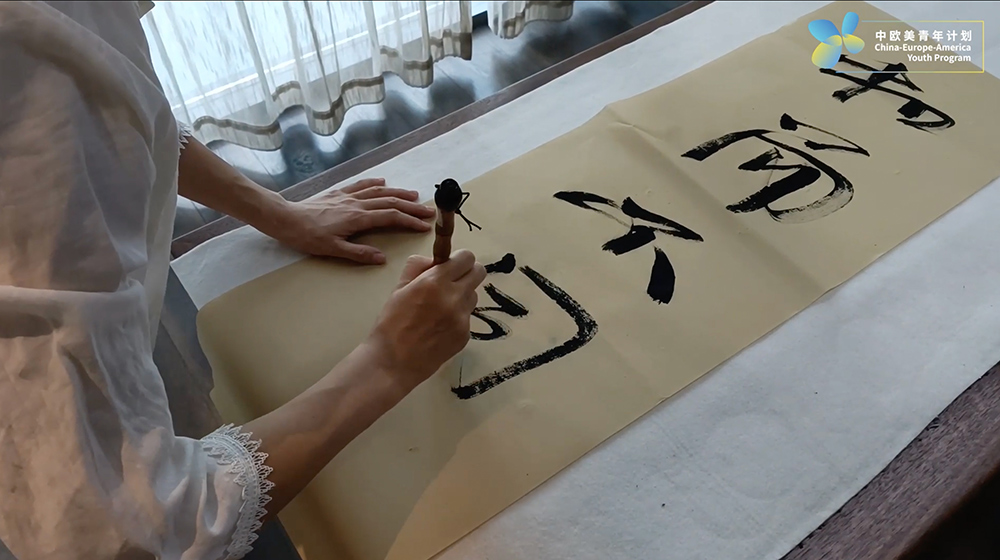
Yann Klein, chef at Maison Lameloise in Shanghai, highlighted the role of apprenticeship in the field of craftsmanship.
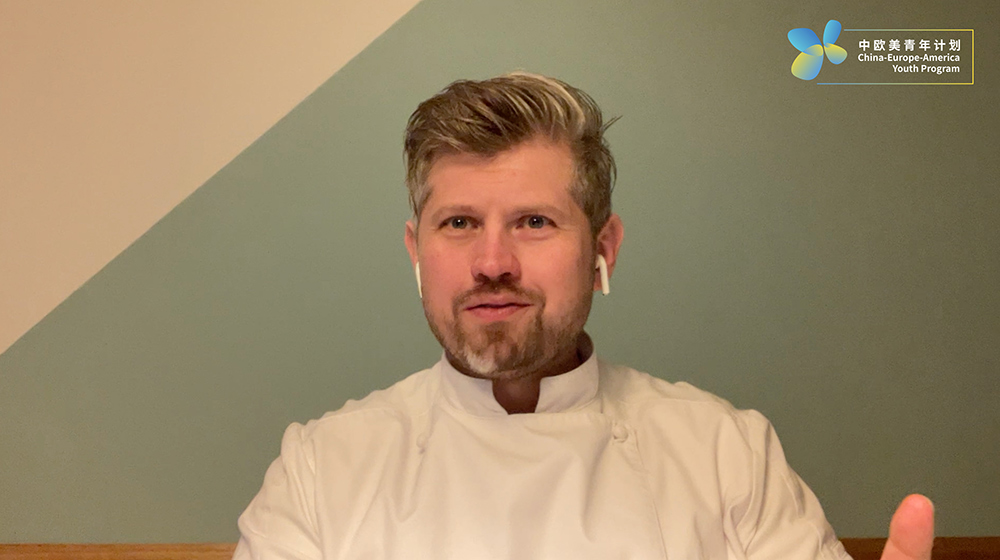
A master in French cuisine, Yann Klein called for a wider recognition of apprenticeship since it provides value and knowledge. It is also, according to him, a sure path to employment allowing international mobility.
